
(1).
About MBA
MBA stands for Master of Business Administration
and is a postgraduate degree in business management. In India, pursuing an MBA
is a popular choice for those who want to enhance their career opportunities
and gain management skills.
There
are various options available for pursuing an MBA in India, including
full-time, part-time, distance learning, and online programs. Some of the
popular entrance exams for MBA in India
include CAT (Common Admission Test), XAT (Xavier Aptitude Test), GMAT (Graduate
Management Admission Test), and MAT (Management Aptitude Test).
Indian
Institutes of Management (IIMs) are the top B-schools in India, offering highly
coveted MBA programs. Other prestigious B-schools in India include XLRI, SPJIMR, FMS, and ISBM.
Pursuing an MBA in India can be expensive, and the cost varies depending on the institute and program chosen. However, scholarships and financial aid are available for deserving candidates. The ROI (Return on Investment) of an MBA degree in India is generally considered high, as it can lead to better job prospects and higher salaries.
(2).
Eligibility Criteria
The
eligibility criteria for MBA programs in India may vary from one institution to
another, but some of the common requirements include:
(1).
Bachelor's Degree
Candidates
must have a Bachelor's degree in any discipline from a recognized university.
The duration of the degree should be at least three years.
(2).
Minimum Marks
Candidates
must have secured a minimum of 50% marks or equivalent CGPA in their Bachelor's
degree. However, some institutions may require a higher percentage of marks.
(3).
Entrance Exam
Candidates
must appear for national or state-level entrance exams such as CAT, MAT, XAT,
CMAT, or GMAT. The scores of these exams are used by most institutions for
admission.
(4).
Work Experience
Some
institutions may prefer candidates with work experience, especially for
executive MBA programs.
(5).
English Language Proficiency
Candidates
should have talent in the English language. Some institutions may require
candidates to take an English language proficiency test such as TOEFL or IELTS.
(6).
Age Limit
There
is no specific age limit for MBA programs in India. However, a few
establishments might also additionally have their personal age criteria.
It is vital to be aware that eligibility standards can also additionally range from group to group. Candidates should check the specific requirements of the institutions they are interested in applying to before applying.
(3).
MBA Program Rankings
There
are various organizations that rank MBA programs in India based on different
criteria. Some of the popular rankings for MBA programs in India include:
(1).
National Institutional Ranking Framework (NIRF)
NIRF
is an annual ranking released by the Ministry of Education, Government of
India. It ranks educational institutions in India based on various parameters,
including teaching, learning, research, and perception. NIRF also ranks MBA
programs offered by B-schools in India.
(2).
Business Today
Business
Today is a leading business magazine in India. It releases an annual ranking of
B-schools in India based on various parameters, including reputation, faculty,
infrastructure, placements, and international linkages.
(3).
QS World University Rankings
QS
World University Rankings is an annual ranking of B universities and colleges
worldwide. It ranks MBA programs offered by B-Schools in India based on various
metrics including employability, alumni achievement, and diversity.
(4).
Outlook-ICARE India MBA Rankings
Outlook-ICARE
India MBA Rankings is an annual ranking of B-schools in India released by
Outlook magazine. It ranks B-schools based on various parameters, including
reputation, faculty, research, and placements.
(5).
Eduniversal Best Masters Ranking
Eduniversal
is an international rating and score employer for better education. It ranks
MBA programs offered by B-schools in India based on various parameters,
including international reputation, accreditations, and faculty expertise.
(6).
Financial Times Global MBA Rankings
Financial
Times releases an annual ranking of MBA programs worldwide based on various
parameters, including career progress, salary increase, international mobility,
and faculty diversity.
(7).
The Economist MBA Rankings
The
Economist releases an annual ranking of MBA programs worldwide based on various
parameters, including career opportunities, personal development, and salary
increase.
(8).
Bloomberg Businessweek Best Business Schools
Bloomberg
Businessweek releases an annual ranking of MBA programs in the US based on
various parameters, including student surveys, employer surveys, and career
outcomes.
(9).
Forbes Best Business Schools
Forbes
releases an annual ranking of MBA programs in the US based on various
parameters, including return on investment, alumni satisfaction, and networking
opportunities.
It
is important to note that rankings can vary from year to year and may not be
the only factor to consider while selecting an MBA program. Candidates should
also consider other factors such as program curriculum, faculty, industry
connections, placements, and alumni network before making a decision.
(4).
How to choose the right school for MBA in India?
Choosing
the right school for an MBA in India can be a daunting task as there are
numerous options available. Here are some factors to consider while selecting a
school for an MBA in India:
(1).
Reputation
The
reputation of the B-school is an essential factor to consider. Look for schools
that have a good reputation and are recognized by top organizations, such as
the National Institutional Ranking Framework (NIRF), QS World University
Rankings, and Financial Times Global MBA Rankings.
(2).
Curriculum
The
curriculum of the MBA program is another crucial factor to consider. Look for
schools that offer a comprehensive and industry-relevant curriculum that
includes hands-on experience through internships, case studies, and projects.
(3).
Faculty
The
quality of the faculty is an important factor to consider while selecting an
MBA program. Look for schools that have experienced and knowledgeable faculty
members who have worked in the industry and can provide real-world insights.
(4).
Industry Connect
Look
for schools that have strong industry connections and collaborations with top
companies in the industry. These collaborations can help you get exposure to
the latest industry trends and gain practical experience through internships
and projects.
(5).
Placement Record
The
placement record of the school is another important factor to consider. Look
for schools that have a high placement record with reputed companies in the
industry. Also, check the average salary packages offered to students.
(6).
Alumni Network
The
alumni network of the school is an important factor to consider. Look for
schools that have a strong alumni network as it can provide you with valuable
connections and networking opportunities.
(7).
Location
The
location of the school is also an important factor to consider. Look for
schools that are located in a city with a strong business ecosystem, as they
can provide you with better opportunities for internships and placements.
Considering
these factors can help you make an informed decision while selecting the right
school for an MBA in India.
(5).
Conclusion Note
To
summarize, MBA program rankings provide a good starting point for candidates to
shortlist top B-schools. Rankings such as Financial Times Global MBA Rankings,
QS Global MBA Rankings, and The Economist MBA Rankings are some of the popular
ones. However, candidates should not solely rely on rankings while choosing an
MBA program.
When
choosing the right school for an MBA in India, candidates should consider
factors such as the reputation of the institution, the curriculum, the quality
of faculty, industry connections, placement records, alumni network, and
location. It is important to research and compare multiple schools to make an
informed decision.
Additionally,
the eligibility criteria for MBA programs in India may vary from institution to
institution, but some common requirements include a Bachelor's degree, minimum
marks, entrance exam scores, and English language proficiency. Candidates
should check the specific eligibility criteria of the institutions they are
interested in before applying.
By
considering these factors, candidates can select the right school and MBA
program that aligns with their career goals and aspirations.
The Future of Work: Preparing MBA Graduates for a Changing Job Market
Related News
View AllRelated Articles
View AllTrending Articles
View All-

GMAT 2023: Registration, Dates, Eligibility, Scholarship, Syllabus, and Exam Pattern
Jul, 19, 2023 Read More -

NMAT 2023: Save the Dates Registration, Exam Pattern, Syllabus and Selection
Jul, 18, 2023 Read More -

Cracking CAT 2023: Essential Guide to Exam Dates, Notification, Registration, and Syllabus
Jul, 17, 2023 Read More
Trending News
View All-
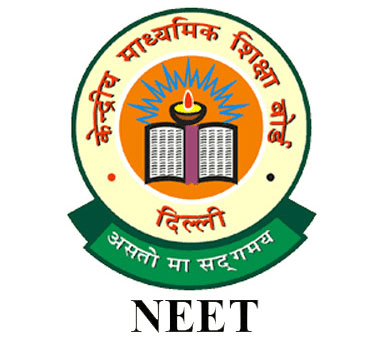
NEET UG 2024 Cutoff: Top 10 NIRF Ranked Medical Colleges & Expected Percentiles
May, 18, 2024 Read More -
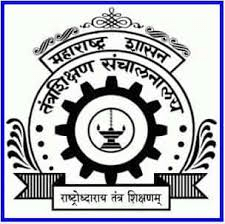
MAH CAP Counseling 2024 Registration Start: Key Dates, Eligibility, and Step-by-Step Guide
May, 18, 2024 Read More -

BSE Odisha Result 2024 Expected Today: Live Updates - Check Odisha 10th Result Date
May, 17, 2024 Read More -

TS PGECET 2024: Correction Window Open till May 16, Exam Dates, Eligibility & Registration Details
May, 16, 2024 Read More -

Odisha CHSE 2024 Live Updates: Check Odisha 12th Result Date, Steps to Download
May, 16, 2024 Read More









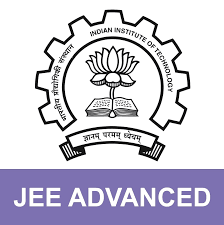
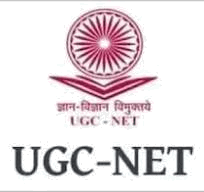


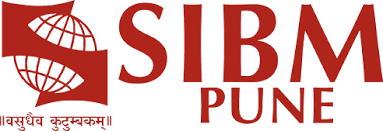
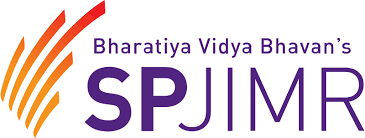


 back
back

